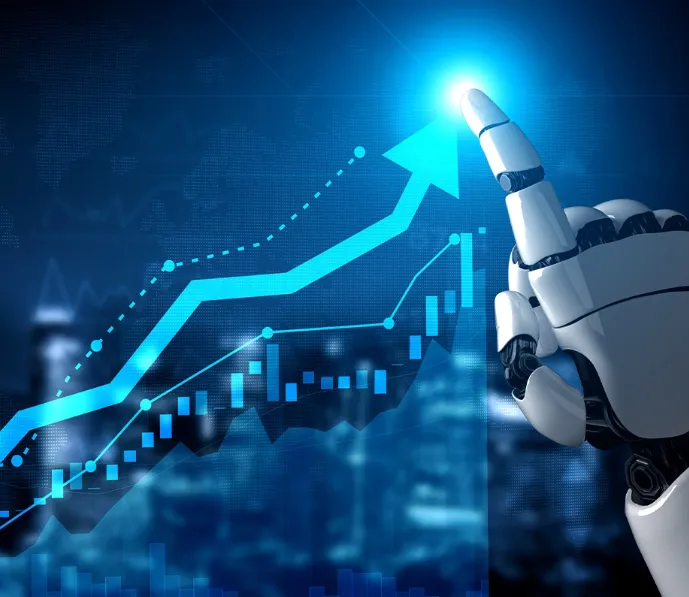From Insights to Impact: How AI Turns Marketing Data into Profit

In today’s digital economy, data is the fuel that powers marketing success. Every click, search, and purchase creates a trail of information that, when harnessed effectively, can transform how businesses connect with their audiences. Yet, raw data alone is not enough—it’s the ability to interpret and act on that data that drives real results. This is where artificial intelligence (AI) has become indispensable, turning overwhelming streams of information into meaningful strategies that boost marketing return on investment (ROI).
Building a Data-Driven Foundation
A winning marketing strategy begins with collecting the right data. Customer demographics, browsing behavior, purchase history, and even social interactions create a clearer picture of who your audience is and what they value. Tools like CRM systems, website analytics, surveys, and social listening platforms help organize this information into actionable insights.
But collecting data is just the first step. The real advantage comes from applying AI to analyze patterns, identify trends, and forecast outcomes. Unlike traditional methods, AI can process massive datasets at speed, uncovering connections that would otherwise go unnoticed.
The Role of AI in Transforming Data
AI-powered systems take marketing analysis far beyond basic reporting. They can:
- Interpret text and sentiment by analyzing reviews, social posts, and surveys to understand customer attitudes.
- Predict future behavior using historical data to forecast trends, customer churn, or product demand.
- Recommend strategies by highlighting where to focus budgets or how to refine campaigns for maximum impact.
For example, predictive analytics platforms can help marketers anticipate seasonal spikes in demand, while natural language processing tools reveal how audiences feel about a brand in real time.
Real-World Proof of Data-Driven Success
Many leading companies have shown what’s possible when AI meets marketing. Netflix’s recommendation system keeps viewers engaged by serving up shows tailored to their interests. Amazon’s personalized product suggestions drive higher conversion rates. Starbucks uses loyalty program data to deliver customized promotions, strengthening customer loyalty and increasing average spending. Each case illustrates how targeted, AI-informed strategies directly influence ROI.
Personalization as a Competitive Edge
Modern customers expect brands to recognize their preferences and deliver relevant experiences. AI enables personalization at scale by segmenting audiences, crafting individualized messages, and automating engagement.
- Customer segmentation helps identify high-value groups with specific buying habits.
- Recommendation engines suggest products, playlists, or services tailored to individual behavior.
- Chatbots offer personalized support, gather insights, and qualify leads without human intervention.
Brands like Spotify and Netflix thrive because they know how to make every user feel like their experience was designed just for them. This personal touch translates into loyalty, engagement, and higher ROI.
AI in Content Marketing
Content remains a cornerstone of digital marketing, and AI is reshaping how it’s created, optimized, and shared. Tools can now generate first drafts of articles, suggest trending topics, and even optimize content for search engines.
More importantly, AI ensures content reaches the right people at the right time. From programmatic advertising that serves ads to the most relevant audiences, to email platforms that tailor subject lines and send times, AI helps content deliver measurable results. Successful implementations, like The Washington Post’s use of AI for data-driven reporting or Grammarly’s AI-powered writing assistance, show how technology is raising the bar for content quality and distribution.
Smarter Advertising Through AI
Marketing spend must be carefully allocated, and AI makes that process smarter. By predicting which audiences are most likely to respond, algorithms refine ad targeting and placement. They also automate A/B testing, adjust bids in real time, and even personalize ad creative for individual users.
This level of automation ensures marketers not only reach their audience but do so efficiently, reducing wasted spend while improving campaign performance. Coca-Cola, for example, has used AI-driven advertising strategies to deliver more personalized campaigns, boosting both engagement and sales.
Elevating Customer Engagement
Customer relationships go beyond transactions—they depend on meaningful interactions. AI enhances engagement by providing:
- Always-on support via chatbots and virtual assistants.
- Sentiment analysis to monitor brand reputation and adapt messaging.
- Social media optimization that identifies the best times, formats, and strategies for connection.
Brands like Sephora have built interactive experiences through AI-powered tools that guide users toward tailored recommendations, while Airbnb uses AI chatbots to provide instant, customized travel assistance. Both examples prove that technology can enhance—not replace—the human touch.
Measuring ROI with Precision
At the end of the day, marketing success is measured in results. AI tools give marketers real-time dashboards, predictive models, and advanced attribution systems that clearly show which efforts drive the most impact. By analyzing customer journeys across multiple channels, AI reveals where budgets should be increased, where to scale back, and how to maximize every dollar spent.
Companies such as Adobe and Walmart already rely on AI platforms to sharpen their strategies, proving that the combination of accurate data and smart automation directly boosts profitability.
Turning Data into Dollars
The path from raw data to measurable ROI is no longer a mystery—it’s a process powered by AI. By collecting meaningful customer information, analyzing it intelligently, and applying it through personalization, optimized campaigns, and smarter engagement, businesses can transform insights into real revenue.
As digital competition intensifies, the ability to use AI effectively will separate brands that simply gather data from those that truly capitalize on it. For marketers, the opportunity is clear: with AI, data isn’t just information—it’s profit waiting to be unlocked.







